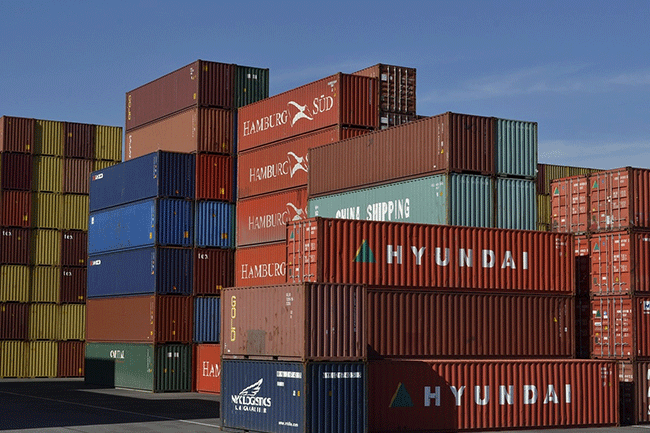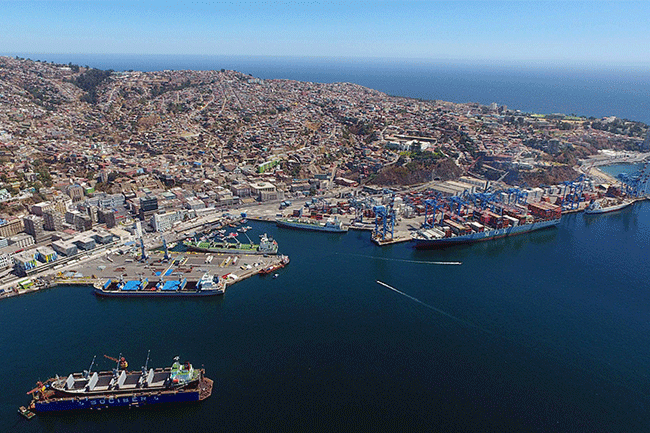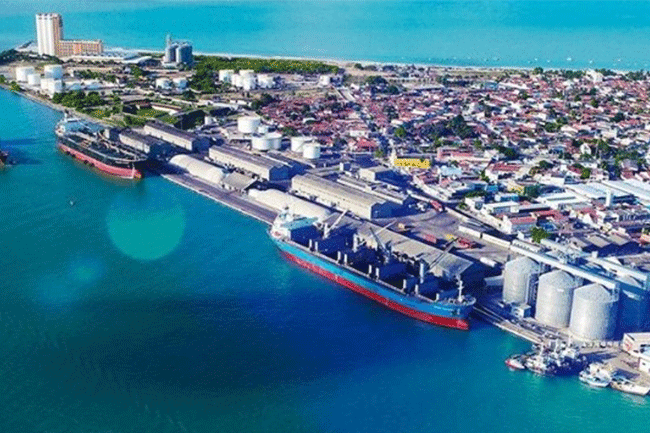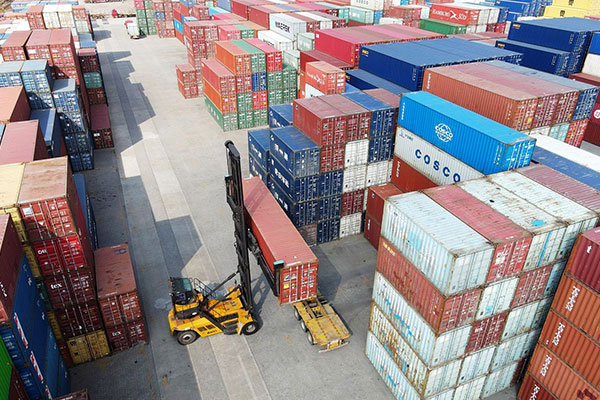- Shanghai Zhongshen International Trading Co., Ltd. – Your reliable partner with 20 years of import/export agency service expertise.

1. The policy background and market opportunities of biscuit trade between New Zealand and China
After the Regional Comprehensive Economic Partnership Agreement (RCEP) officially took effect in New Zealand in 2022, the level of trade facilitation between China and New Zealand has been further enhanced. As one of China's main sources of imported biscuits, New Zealand continues to gain popularity in the Chinese consumer market with its butter cookies, oat biscuits, and other products, thanks to its strict food safety standards (such as the MPI certification system) and advantages in high-quality dairy raw materials. According to customs data, the value of biscuit imports from New Zealand to China increased by 18.7% year-on-year from January to October 2023, with the majority of imports concentrated in ports such as Shanghai, Guangzhou, and Shenzhen.
Under the current international trade situation, although the global supply chain is still affected by port congestion,Maritime transportDespite the impact of factors such as exchange rate fluctuations, the positioning of China and New Zealand as important trading partners of each other remains unchanged. It's worth noting that when it comes to transit trade with Russia or tripartite trade scenarios, special attention should be paid to the compliance of international settlements—Zhong Shen International Trade Co., Ltd.Relying on cooperation with Russiaforeign tradeThe long-term cooperation with the bank (VTB) can provide more stableConvert foreign exchange into RMBThe channel effectively reduces exchange rate fluctuations and?Forex Settlement?Delay risk.
II. The core services of the New Zealand cookie import agent: Dual-driven by documentation and logistics
(I) Document Processing: The “Invisible Line of Defense” for Full-Process Compliance
As pre-packaged food products, imported biscuits' compliance with documentation requirements directly affects customs clearance efficiency and the legality of subsequent sales. Zhong Shen International Trade's documentation team is deeply involved in the following key stages:
- Pre-approval: We get involved in the contract signing stage and review the special requirements for documents in the trade terms (such as?L/C?The types and number of documents under the L/C, with a focus on verifying the HS code (suggested classification as 1905.3100 or 1905.3200), the origin marking (which must be consistent with the FORM E certificate), and the ingredient list (which must comply with the GB 28050-2011 "General Guidelines for Nutrition Labeling of Prepackaged Foods").
- Preparation of key documents: Lead the preparation/review of commercial invoices (which must reflect the FOB/CIF price terms), packing lists (indicating gross weight/net weight/volume), health certificates issued by the New Zealand Ministry of Primary Industries (MPI) (which must state "comply with China's import food requirements"), and the Regional Comprehensive Economic Partnership Agreement.Origin CertificateBook (FORM E, eligible for 0-5% tariff concessions) and ocean freight bill of lading (B/L, which must match the customs clearance information at the destination port).
- Post-production archiving: After completing customs clearance, we will simultaneously provide a full set of document copies (including customs declaration forms, tax invoices, and inspection and quarantine certificates) to meet our clients' financial settlement and subsequent traceability requirements.
(II) Logistics Management: Full-Chain Control from New Zealand Plant to China Warehouse
The professionalism of the logistics process directly determines the import cost and delivery time. Zhong Shen International Trade relies on 15 years of experience in logistics management to provide efficient and cost-effective import and export services.International LogisticsInternet, providing customized solutions:
- Selection of transportation methods: Mainly by full container load (FCL) (suitable for 20-foot/40-foot standard containers. Please note the requirements for moisture-proofing biscuits, and "moisture-sensitive" labels need to be attached). Urgent orders can be arranged upon request.Air freight(aviation embargo clauses must be confirmed in advance);
- Port Coordination: Preferably, choose the direct shipping route from Auckland Port (New Zealand's main export port) to Shanghai Yangshan Port/Guangzhou Nansha Port (with an average shipping time of 18-22 days), to avoid the risk of cargo damage caused by transshipment via Singapore/Busan;
- Customs Clearance Coordination: 3 working days in advance, transfer the declaration data to the customs (through the Single Window System), and provide the pre-classification certificate and the ingredient testing report (if the client has entrusted a third-party testing agency) when cooperating with the customs in the inspection process;
- Last-mile delivery: We have signed long-term agreements with JD Logistics and Sinotrans, etc. to support nationwide distribution (note the need for cold chain logistics - regular temperature biscuits do not require it, but those containing chocolate ingredients need to be transported at 4-8°C).
III. A Detailed Explanation of the Entire Process of Agency Services: Nine Key Stages from Consultation to Feedback
- Customer Inquiry (Needs Diagnosis): Collect information such as import volume (monthly/annual), target ports, and sales channels (supermarkets/e-commerce/distribution) through questionnaires to determine whether there is any transshipment to Russia involved. Preliminarily assess the complexity of documentation requirements (e.g., whether Halal certification is needed).
- Negotiate and sign the contract (lock in the terms): The main points of negotiation include service fees (usually 1-3% of the value of the goods), liability boundaries (for example, if the client provides an incorrect HS code, the demurrage fee incurred in Hong Kong shall be borne by the client), and payment methods (T/T with a 30% advance payment and a 70% payment upon arrival, or a sight L/C).
- Orders and Payments (Fund Management): When opening letters of credit on behalf of clients, we strictly review "soft clauses" (such as "the importer's representative must sign the quality confirmation letter"); for T/T payments, we monitor the arrival of funds through banking channels like VTB to prevent fraud risks.
- Production Supervision (Quality Prevention and Control): If requested by the client, we can coordinate with third-party organizations such as SGS to conduct inspections at the New Zealand factory (at the client's additional cost), with a focus on verifying the batch of raw materials (such as the source of butter) and ensuring compliance with packaging requirements (Chinese labels must be designed and registered in advance).
- Logistics Management (Dynamic Tracking): Obtain ship position information in real time through the shipping company's API, and immediately initiate emergency plans (such as switching to the next sailing or supplementing with air freight) in the event of a shipping delay (e.g., a strike at the Port of Auckland).
- Customs compliance (tax and duty payment): When pre-entering the customs declaration form, accurately declare the "specifications and models" (e.g., 200g/box), the "country of origin" (New Zealand), calculate the tariffs (under the RCEP tariff rate, the tariff for tariff code 1905.3100 is 0%), value-added tax (13%), and possible consumption tax (if it contains alcohol components).
- Delivery and distribution (end-user implementation): After the goods are released, we will arrange to pick up the containers within 24 hours, and distribute them to the designated warehouse according to the customer's needs (the customer needs to provide the inventory list to verify the quantity), and simultaneously upload the logistics track to the customer management system.
- Quality Assurance (After-sales Support): Help clients apply to the customs for sampling inspection (inspection items include microorganisms and additives). If quality issues (such as mold) arise, assist in collecting evidence (such as unboxing videos and inspection reports). Assist in initiating a return shipment or claiming compensation from the exporter.
- Summary and feedback (experience accumulation): Provide an "Import Full-Process Analysis Report", covering time efficiency statistics (with an average of 45 days from placing an order to delivery), cost breakdown (with ocean freight accounting for approximately 20%), and risk point alerts (such as the validity period of the FORM E certificate being one year), to assist clients in optimizing their next import plans.
IV. Special Notes on Certification: Professional Advice but Within Legal Limits of Service Provision
It should be particularly emphasized that Zhong Shen International Trade Co., Ltd. does not directly provide product certification services, but will clearly inform clients of the certification requirements they need to complete on their own:
- China mandates that...: The registration of foreign production enterprises of imported food (FAPC) requires New Zealand exporters to complete the registration process at the General Administration of Customs under the category of "imported food".CosmeticsImport and export1. Register on the "Business Registration System"; 2. Submit the required materials and complete the online application process; 3. Wait for the approval of the application and receive the business registration certificate.
- New Zealand's official requirements: Before exporting, it is necessary to obtain a health certificate (Certificate of Free Sale) issued by MPI.
- Optional certification: If the client's target market is high-end supermarkets, it is recommended to apply for ISO22000 (Food Safety Management System) or HACCP (Hazard Analysis and Critical Control Points) certification (issued by third-party organizations such as SGS and BV).
Our company can provide compliance review services for certification documents (such as verifying whether the FAPC registration number is valid and whether the health certificate signature complies with the MPI format), ensuring that there will be no rejection of customs clearance due to defects in the certification documents.
5. Conclusion: Professional agents are the "efficiency engine" of New Zealand biscuit imports.
The successful import of cookies from New Zealand relies not only on high-quality products themselves, but also on addressing multiple challenges such as document compliance, logistics fluctuations, and policy changes. With 20 years of foreign trade agency experience, Zhong Shen International Trade Co., Ltd. focuses on its core competence of "zero document errors and full logistics control," combined with in-depth analysis of the international trade situation, to provide clients with a full-cycle service from consultation to feedback, truly realizing the goal of "making import easier."
(Note: The procedures and policies described herein are based on regulations effective January 2024; actual operations must be adjusted to real-time policy changes.)
? 2025. All Rights Reserved.










